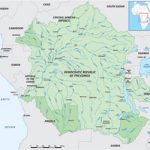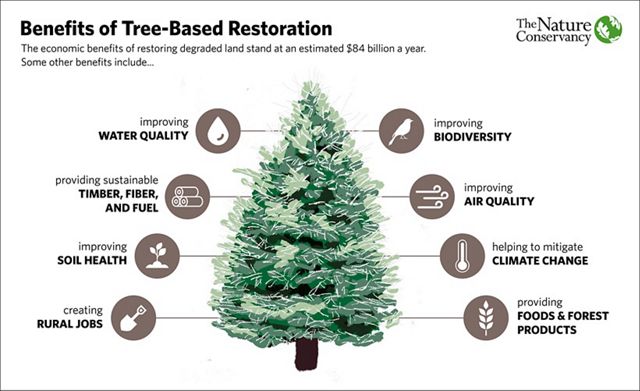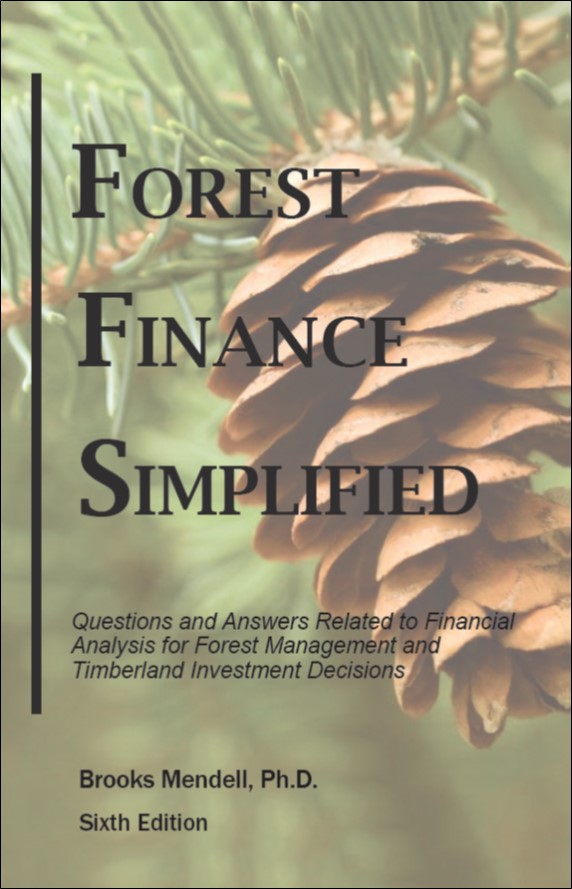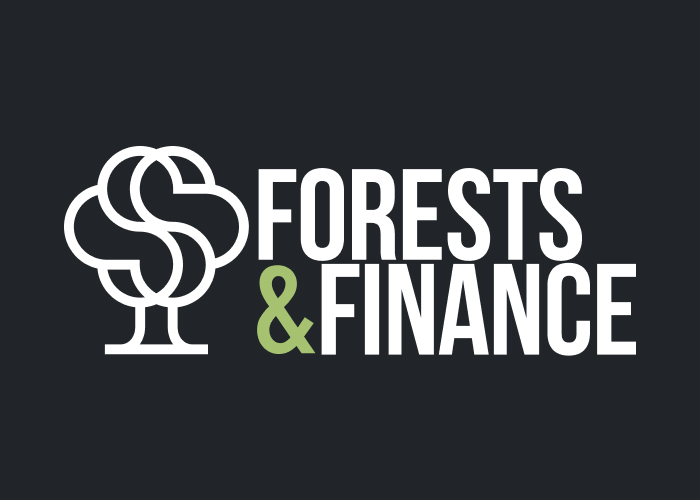Forests play a critical role in sustaining life on Earth, providing essential ecosystem services, biodiversity, and climate regulation. However, their preservation is increasingly intertwined with global finance, as deforestation and land degradation pose significant economic and environmental risks. This article explores the intersection of forests and finance, highlighting innovative funding mechanisms, sustainable investment strategies, and the lessons these approaches offer for the global community. By examining successful case studies and emerging trends, it underscores the importance of aligning financial systems with ecological preservation. The discussion aims to inspire collective action, fostering a future where economic growth and environmental stewardship coexist harmoniously for the benefit of all.

Forests, Finance, and Lessons for the Global Community
Forests play a critical role in maintaining ecological balance, supporting biodiversity, and combating climate change. However, their preservation and sustainable management require significant financial investment and global cooperation. This section explores the intersection of forests, finance, and the lessons that can be drawn for the global community to ensure a sustainable future.
The Economic Value of Forests
Forests contribute significantly to the global economy through timber, non-timber products, and ecosystem services. They provide livelihoods for millions of people, especially in developing countries. However, the economic benefits of forests are often undervalued, leading to deforestation and degradation. Sustainable financing mechanisms, such as carbon credits and payment for ecosystem services (PES), can help bridge this gap by incentivizing conservation efforts.
See Also Best Way to Raise Capital for Carbon Projects in the Congo Basin?
Best Way to Raise Capital for Carbon Projects in the Congo Basin?| Economic Contribution | Examples |
|---|---|
| Timber and Non-Timber Products | Wood, resin, medicinal plants |
| Ecosystem Services | Carbon sequestration, water regulation |
| Livelihoods | Jobs in forestry, tourism, and agriculture |
Financing Forest Conservation
Financing forest conservation is a complex challenge that requires collaboration between governments, private sectors, and international organizations. Innovative financial instruments, such as green bonds and forest funds, are emerging as effective tools to mobilize resources. Additionally, international agreements like the Paris Agreement emphasize the importance of financial support for forest conservation in developing countries.
| Financial Instrument | Purpose |
|---|---|
| Green Bonds | Fund environmentally friendly projects |
| Forest Funds | Support reforestation and conservation |
| Carbon Credits | Incentivize emission reductions |
Global Lessons from Forest Management
Effective forest management requires learning from both successes and failures across the globe. Countries like Costa Rica have demonstrated how reforestation and sustainable practices can lead to economic growth and environmental preservation. On the other hand, regions with weak governance and illegal logging highlight the need for stronger policies and enforcement.
| Country/Region | Lesson |
|---|---|
| Costa Rica | Reforestation drives economic growth |
| Amazon Rainforest | Weak governance leads to deforestation |
| Scandinavia | Sustainable forestry balances economy and ecology |
The Role of Technology in Forest Conservation
Advancements in technology, such as satellite imaging and blockchain, are revolutionizing forest conservation efforts. Satellite imaging enables real-time monitoring of deforestation, while blockchain can ensure transparency in financial transactions related to forest projects. These technologies empower stakeholders to make informed decisions and hold accountable those who exploit forest resources.
See Also Isometric’s New Carbon Removal Approach
Isometric’s New Carbon Removal Approach| Technology | Application |
|---|---|
| Satellite Imaging | Monitor deforestation and land use changes |
| Blockchain | Ensure transparency in financial transactions |
| Drones | Assess forest health and map areas |
Community Involvement in Forest Preservation
Local communities are often the most effective stewards of forests. Empowering them through education, resources, and legal rights can lead to more sustainable outcomes. Programs that involve indigenous communities, such as community-based forest management (CBFM), have shown promising results in preserving biodiversity and reducing deforestation rates.
| Community Program | Impact |
|---|---|
| Community-Based Forest Management | Reduces deforestation, preserves biodiversity |
| Indigenous Land Rights | Protects forests and cultural heritage |
| Education and Training | Promotes sustainable practices |
What are the financial benefits of forests?

Revenue from Timber and Wood Products
Forests are a significant source of timber and wood products, which contribute substantially to the global economy. The financial benefits include:
See Also Australia's Net Zero Goal by 2050: How Sustainable Agriculture Is Leading the Charge
Australia's Net Zero Goal by 2050: How Sustainable Agriculture Is Leading the Charge- Timber sales: Logging operations generate income for businesses and governments through the sale of wood for construction, furniture, and paper.
- Job creation: The forestry sector provides employment for millions of people worldwide, from loggers to factory workers.
- Export earnings: Many countries rely on the export of timber and wood products as a major source of foreign exchange.
Ecotourism and Recreational Activities
Forests attract tourists and outdoor enthusiasts, creating opportunities for ecotourism and recreational activities. The financial benefits include:
- Tourism revenue: National parks and forest reserves generate income through entrance fees, guided tours, and accommodations.
- Local businesses: Restaurants, hotels, and souvenir shops benefit from the influx of visitors.
- Job opportunities: Ecotourism creates employment for guides, park rangers, and hospitality staff.
Carbon Credits and Climate Change Mitigation
Forests play a crucial role in carbon sequestration, which can be monetized through carbon credit programs. The financial benefits include:
- Carbon trading: Companies and governments can buy and sell carbon credits to offset their emissions, providing income for forest conservation projects.
- Incentives for reforestation: Financial rewards for planting trees and restoring degraded lands.
- Climate funding: International programs provide grants and loans for forest preservation to combat climate change.
Non-Timber Forest Products (NTFPs)
Forests provide a variety of non-timber forest products that have significant economic value. The financial benefits include:
- Medicinal plants: Many pharmaceuticals are derived from forest plants, creating revenue for harvesters and companies.
- Food products: Fruits, nuts, and mushrooms harvested from forests are sold in local and international markets.
- Handicrafts: Materials like bamboo, rattan, and resins are used to create products sold globally.
Water Resource Management
Forests are essential for maintaining water cycles and ensuring clean water supplies, which have direct financial benefits. These include:
- Reduced water treatment costs: Forests filter water, lowering the expenses for municipalities and industries.
- Hydropower generation: Forests in watersheds support consistent water flow for hydroelectric plants.
- Agricultural productivity: Healthy forests ensure reliable water supplies for irrigation, boosting crop yields.
How are forests an important global resource?

Forests as Carbon Sinks
Forests play a critical role in mitigating climate change by acting as carbon sinks. They absorb carbon dioxide from the atmosphere and store it in their biomass, soil, and vegetation. This process helps reduce the concentration of greenhouse gases, which are the primary drivers of global warming.
- Trees absorb CO2 during photosynthesis, converting it into oxygen and organic matter.
- Forests store approximately 30% of the world's carbon, making them vital for climate regulation.
- Deforestation releases stored carbon back into the atmosphere, exacerbating climate change.
Biodiversity Hotspots
Forests are home to an estimated 80% of terrestrial biodiversity, providing habitats for countless species of plants, animals, and microorganisms. This biodiversity is essential for maintaining ecological balance and supporting life on Earth.
- Forests host a wide range of endemic species found nowhere else on the planet.
- They support complex ecosystems that are interconnected and interdependent.
- Loss of forests leads to species extinction and disrupts ecosystems.
Economic Value of Forests
Forests contribute significantly to the global economy by providing raw materials, employment, and income for millions of people. Industries such as timber, paper, and pharmaceuticals rely heavily on forest resources.
- Forests generate billions of dollars annually through timber and non-timber products.
- They support livelihoods for 1.6 billion people, including indigenous communities.
- Ecotourism in forests is a growing sector that boosts local economies.
Water Regulation and Quality
Forests are essential for maintaining water cycles and ensuring clean water supplies. They act as natural filters, preventing soil erosion and regulating water flow in rivers and streams.
- Forests help recharge groundwater and maintain river flows.
- They reduce the risk of floods and droughts by stabilizing water systems.
- Forests filter pollutants, improving water quality for human consumption.
Cultural and Recreational Importance
Forests hold immense cultural significance for many communities and provide recreational opportunities for people worldwide. They are often tied to spiritual practices, traditions, and well-being.
- Forests are sacred spaces for indigenous peoples and local communities.
- They offer recreational activities such as hiking, camping, and wildlife observation.
- Spending time in forests has been shown to improve mental health and reduce stress.
What is forest financial?

What is Forest Financial?
Forest Financial is a financial services company that specializes in providing investment, wealth management, and financial planning solutions. The company aims to help individuals and businesses achieve their financial goals through tailored strategies and expert advice. Forest Financial focuses on sustainable and ethical investment practices, often incorporating environmental, social, and governance (ESG) principles into their services.
Services Offered by Forest Financial
Forest Financial offers a wide range of financial services designed to meet the diverse needs of its clients. These services include:
- Investment Management: Personalized portfolio management to help clients grow their wealth over time.
- Wealth Planning: Comprehensive financial planning to ensure long-term financial security and success.
- Retirement Planning: Strategies to help clients prepare for a comfortable and secure retirement.
- Tax Planning: Expert advice to minimize tax liabilities and maximize after-tax returns.
- ESG Investing: Investment options that align with clients' values and promote sustainability.
Benefits of Choosing Forest Financial
Choosing Forest Financial comes with several advantages, including:
- Expert Advisors: Access to a team of experienced financial advisors who provide personalized guidance.
- Customized Solutions: Tailored financial strategies that align with individual goals and risk tolerance.
- Sustainable Investing: Opportunities to invest in companies and projects that prioritize environmental and social responsibility.
- Comprehensive Support: Holistic financial services that cover all aspects of wealth management.
- Transparent Practices: Clear and honest communication about fees, performance, and strategies.
How Forest Financial Stands Out
Forest Financial differentiates itself from other financial service providers through its unique approach and values:
- Ethical Focus: Commitment to ethical investing and sustainable financial practices.
- Client-Centric Approach: Prioritizing the needs and goals of clients above all else.
- Innovative Solutions: Utilizing cutting-edge technology and methodologies to deliver superior results.
- Community Engagement: Active involvement in community initiatives and charitable causes.
- Long-Term Vision: Emphasis on building lasting relationships and achieving long-term financial success for clients.
Who Can Benefit from Forest Financial?
Forest Financial's services are designed to benefit a wide range of individuals and entities, including:
- Individual Investors: Those looking to grow their personal wealth and secure their financial future.
- Business Owners: Entrepreneurs seeking expert financial advice to manage and grow their businesses.
- Retirees: Individuals planning for or already in retirement who need strategies to preserve and grow their wealth.
- Families: Families looking for comprehensive financial planning to achieve their collective goals.
- Institutional Clients: Organizations and institutions requiring specialized financial services and investment management.
What is the plan to conserve global forests?

International Agreements and Policies
International agreements and policies play a crucial role in conserving global forests. These frameworks aim to promote sustainable forest management and reduce deforestation. Key initiatives include:
- The Paris Agreement: Focuses on reducing greenhouse gas emissions, which indirectly helps protect forests by addressing climate change.
- UN REDD+ Program: Encourages countries to reduce emissions from deforestation and forest degradation while promoting sustainable forest use.
- Convention on Biological Diversity (CBD): Aims to conserve biodiversity, including forest ecosystems, through global cooperation.
Reforestation and Afforestation Efforts
Reforestation and afforestation are essential strategies to restore and expand forest cover. These efforts involve:
- Planting Native Species: Ensures the restoration of ecosystems and supports local biodiversity.
- Community Involvement: Engages local communities in tree-planting initiatives to ensure long-term sustainability.
- Government Incentives: Provides financial support and policies to encourage reforestation projects.
Combating Illegal Logging and Trade
Illegal logging and trade are significant threats to global forests. Strategies to address these issues include:
- Strengthening Law Enforcement: Implementing stricter regulations and penalties for illegal activities.
- Certification Programs: Promoting certified sustainable wood products to reduce demand for illegally sourced timber.
- International Cooperation: Collaborating across borders to track and prevent illegal timber trade.
Promoting Sustainable Land Use
Sustainable land use practices are vital to balancing human needs with forest conservation. Key approaches include:
- Agroforestry: Integrating trees into agricultural landscapes to enhance productivity and biodiversity.
- Land-Use Planning: Designating areas for conservation, agriculture, and development to minimize deforestation.
- Eco-Friendly Practices: Encouraging farmers and businesses to adopt methods that reduce environmental impact.
Raising Awareness and Education
Educating the public and raising awareness about the importance of forests are critical for conservation. Efforts include:
- Public Campaigns: Highlighting the benefits of forests and the consequences of deforestation.
- School Programs: Incorporating forest conservation into educational curricula to inspire future generations.
- Community Workshops: Providing training on sustainable practices and the value of forest ecosystems.
Frequently Asked Questions (FAQ)
What is the connection between forests and global finance?
Forests play a critical role in the global economy by providing essential resources such as timber, medicinal plants, and ecosystem services like carbon sequestration and water regulation. These services have significant financial implications, as they contribute to climate change mitigation and support industries like agriculture and tourism. Additionally, forests are increasingly integrated into financial markets through mechanisms like carbon credits and sustainable investment funds, highlighting their economic value beyond traditional uses.
How can forests contribute to sustainable finance?
Sustainable finance focuses on investments that generate environmental, social, and economic benefits. Forests are a key component of this approach, as they offer opportunities for green investments such as reforestation projects, conservation initiatives, and sustainable forestry practices. By investing in forests, financial institutions and governments can promote biodiversity conservation, combat climate change, and create long-term economic stability. These efforts align with global goals like the Paris Agreement and the Sustainable Development Goals (SDGs).
What lessons can the global community learn from forest management?
The global community can learn valuable lessons from effective forest management practices, such as the importance of balancing economic development with environmental preservation. Successful models often involve community engagement, where local populations are empowered to manage forest resources sustainably. Additionally, international cooperation is crucial for addressing deforestation and promoting reforestation efforts. These lessons underscore the need for holistic approaches that integrate ecological, social, and economic considerations.
Why is deforestation a global financial concern?
Deforestation poses significant risks to the global economy by undermining ecosystem services that are vital for industries and communities worldwide. The loss of forests contributes to climate change, which can lead to extreme weather events, reduced agricultural productivity, and increased costs for disaster recovery. Furthermore, deforestation disrupts global supply chains that rely on forest-based products, creating economic instability. Addressing deforestation through policy interventions and sustainable practices is essential for safeguarding both the environment and the global economy.
Leave a Reply


Our Recommended Articles